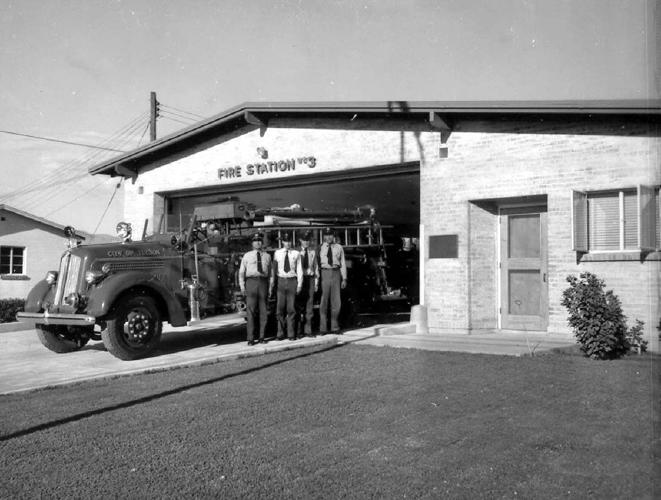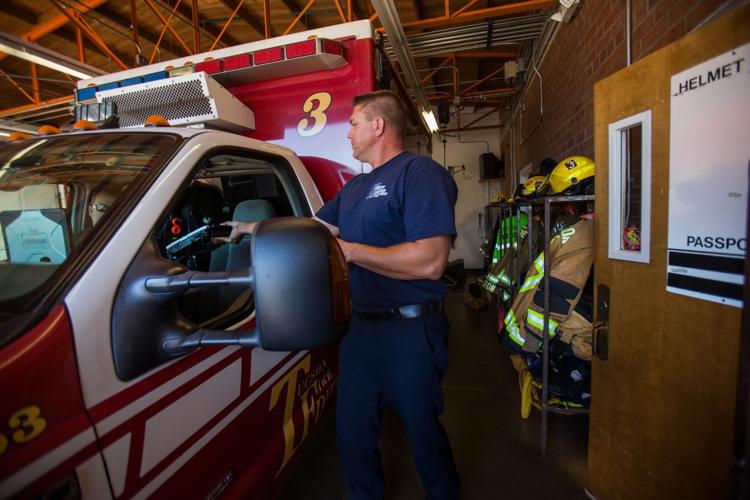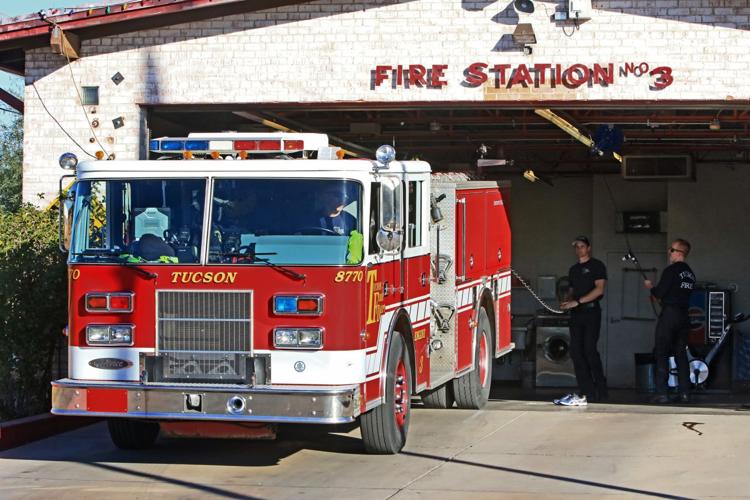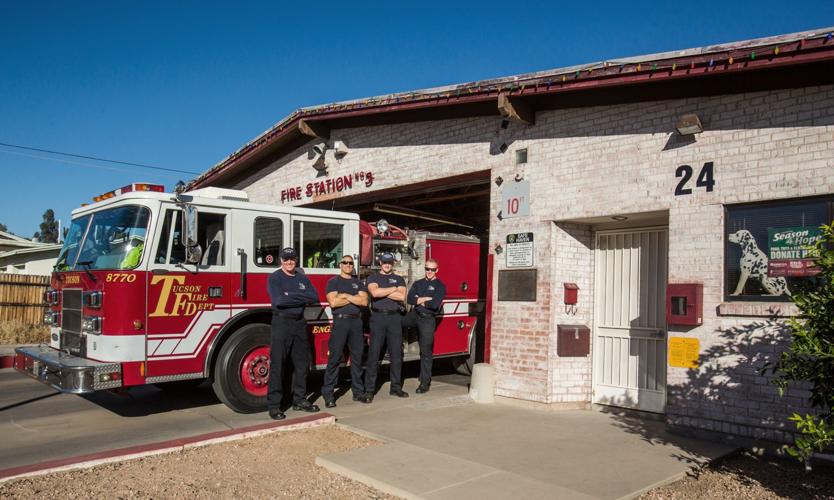Tucson’s oldest firehouse has become an example of how long-delayed capital projects can cost more than a spreadsheet can list. And in this case, officials say, it might be an actual pound of flesh.
Fire Station No. 3 near Campbell Avenue and Broadway dates to the 1950s and has been retrofitted repeatedly in an attempt to extend its useful life. However, city officials say any more changes would be a waste of taxpayer dollars.
A federal grant is paying for a study to determine whether the building is exposing firefighters to toxic levels of known carcinogens from the exhaust of fire trucks and rescue vehicles.
The Tucson City Council is considering whether to put a half-cent sales tax increase on the ballot next May. The tax would generate an estimated $50 million annually, with approximately $30 million going to replace aging equipment — including this station — and to repair infrastructure for the Tucson Police and Fire departments.
The other $20 million would go to road projects under the current proposal being considered by the council.
Assistant Fire Chief Joe Gulotta says Station No. 3 hasn’t changed much since he started working with the department 27 years ago.
He paces back and forth on the empty cement floor of the two-vehicle garage as he explains his concerns about various threats to the health of employees.
He points to a makeshift gym set up only a few feet from the fire engine’s usual parking spot,and to a rack of firefighter gear hanging less than a foot away from the paramedic transport vehicle’s spot. Diesel exhaust coats the gym and the gear.
Behind a thin wooden door are the living room and kitchen, where food sits still warm from the firefighters’ midday meal, which was interrupted by a medical call.
The city installed a giant ventilation system, but that can only do so much.
“Vehicles were smaller and gas-powered. And now we are running large, diesel-powered vehicles,” Gulotta said. “Diesel and gasoline have a lot of carcinogens; they are cancer-causing agents. And cancer is the leading cause of death for firefighters.”
Additionally, fire trucks have increased in size over the years, and the 63-year-old fire house struggles to accommodate them. As a result, the city houses a smaller type of firetruck as its main vehicle to respond to midtown calls, including all calls to the University of Arizona.
When the vehicles at Station No. 3 need to be repaired off-site, the department has difficulty finding substitutes from its current fleet, Gulotta said. A truck temporarily assigned to the station once snagged the lip of the garage door, he said, and caused severe damage to the roll-up door.
“This station’s apparatus bay isn’t large enough, so we have to buy a specifically sized vehicle, and it cannot be taller or longer than a specific size or height,” Gulotta said.
The Fire Department responds to 85,000 to 90,000 emergencies a year, with 90 percent of those calls being medical-related. It averages one working fire a day, Gulotta said.
He said the city manager told various departments to whittle down their big-ticket requests to things that are vitally needed.
“We’ve eliminated the would-be-nices,” Gulotta said. “The manager’s request was ‘I want to know what is needed, not wanted.’”
Tucson City Manager Mike Ortega said while he relies on his staff for advice, he has witnessed first-hand how postponing capital projects has hurt the city financially.
Signing off on emergency repairs for the last year, he said, has given him a good understanding of the needs for new equipment throughout the city.
As for Station No. 3, Ortega toured it recently and saw the issues.
In all, the city is considering replacing up to five firehouses as part of the proposal to raise the sales tax by half a cent. The City Council will decide in January whether to put the proposed sales tax on the ballot.









